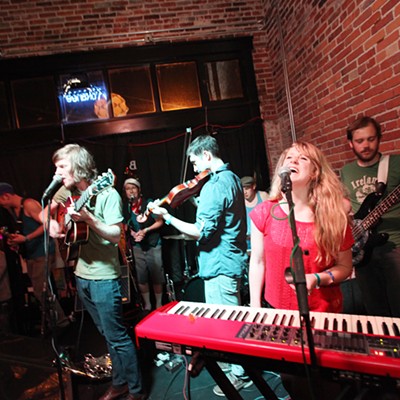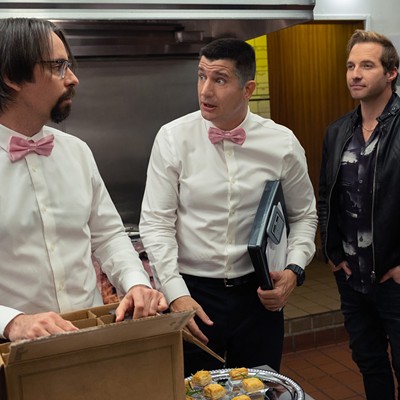Tuesday, June 5, 2012
How Mad Men became a weaker, but more entertaining, show
Mad Men, more than perhaps any other show, has always been a show for critics. It’s the exact opposite of a “laundry-folding” show like CSI or Burn Notice. Those shows are more dull if you watch them carefully.
But Mad Men’s been the opposite. Watch it casually, and it seems like barely nothing happens. It seems like a slow series of relatively dull interactions. But watch it with the critical mindset, analyzing facial tics and subtleties and extrapolating themes, and suddenly, it becomes fascinating, even brilliant.
That’s changing. This season, some of Mad Men’s greatest strengths have begun to erode. The traditional Mad Men has gradually been replaced by a show that, while it isn’t as perfect, is more accessible and entertaining.
Where Mad Men once let viewers and critics tease out themes of discontent, cultural shift, and existential despair, now it underlines them them with a fat pink highlighter. Sunday’s episode had Glenn, a dorky adolescent – and never the show’s most well-acted character – bluntly outlining the theme of the entire series in a few lines of dialogue that might as well have been an “You know, I learned something today” speech by South Park’s Stan.
But plenty of other popular shows do the same. Grey’s Anatomy hammers its themes with an opening and closing monologue, and Modern Family uses mockumentary features to do the same. Critics may complain, but for plenty of viewers, its easier to be told, directly, the point of what they just watched.
Mad Men has always been a soap opera slowed down to a tenth the speed, but the show has always delivered plot twists in a very careful way. They never felt like OMG-what-a-twist. They generally felt genuine to the character instead of surprising. Any character development, after all, is possible if its done slowly enough.
As the plot twists come faster this year, the show is losing that strength.
Mad Men has always had a few out-of-character moments – witness Don’s sudden puppy-love decision to marry Megan – but this season has been full of them.
It didn’t make sense for Joan to suddenly agree to prostitute herself to a client for the good-of-the-bottom-line, nor for Roger, Bert Cooper, and Lane to suddenly support the idea. The build-up to Lane’s suicide felt artificial, like a “perfect storm” created by the writers to write off someone they never knew what to do with.
The season has lurched more into alternate-styles of storytelling, with odd special effects added to Roger’s LSD trip and an it-was-all-just-a-dream fever hallucination sequence given to Don. The show shifted sacrificed subtle for exciting.
Yet, in doing so, it’s become all the more enjoyable to watch. The plot-twists, however unrealistic, make for great discussion around the water cooler. The show is easier to follow, easier to half-watch.
The acting is just as impressive, and now the actors have broader scenes to work with.
No, Mad Men is not at the top of its game this season. But I’ve never had more fun watching it.
Tags: Television , TV , Image




















